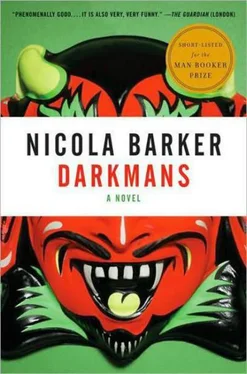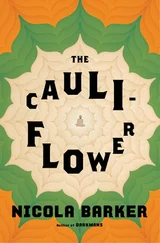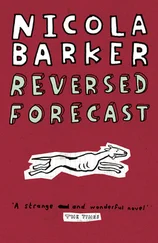‘Give me an example,’ Kane demanded.
‘The whole notion of “a garden”, for starters. Medieval gardens would generally be divided into an inner and an outer area. This is an inner garden. You can see the walls which surround it. An inner garden is a highly formalised space, full of rules and elaborate structures. The outer garden represents “the untamed”: the wild, the pagan, the uncontrolled, the fertile…The inner garden is based around the mead…’
‘The mead? Isn’t that a kind of drink?’
‘No. Same word, different meaning. The mead you’re thinking of is a beverage of fermented honey and water. This kind of mead is a lawn. In medieval times the lawn was planted with wildflowers because scent was incredibly important to them — here we see the violet, which is quite prominent. The violet represents humility — more specifically the humility of the virgin. She’s referred to again in the roses in the borders. The red rose…’
She pointed to the rose. Kane nodded.
‘That represents divine love. Initially Venus, and then, with the advent of Christianity, Mary. The purple or blue of the iris is traditionally a royal colour…’
‘Royal Blue…’ Kane interrupted.
‘Exactly. And the Royal Blue represents the Holy Virgin as the Queen of Heaven. The columbine has petals which are shaped — to the medieval mind, at least — like a dove…’ She sketched the approximate shape, in the air, with her hands. ‘For that reason the columbine was taken to symbolise the Holy Ghost. Carnations — which were relative latecomers to Europe — represent the in carnation…’
‘But what’s the actual point in all of this?’ Kane wondered, apparently nonplussed.
‘The point? The point is to instil everyday objects with a devotional meaning. To underpin the commonplace with a profound sense of the holy. If God created the earth then the earth and everything in it must function simply as an extended homily to Him and His Work.’
‘How turgid ,’ Kane drawled.
‘No more turgid, I suppose,’ she responded (half-smiling at his ready use of this unexpected word), ‘than some of the apparently complex yet equally meaningless ramifications of modernity.’
He frowned at her. ‘Such as?’
‘ Uh …’ she gave this question a moment’s consideration. ‘Well how about your trainers, for starters?’
‘My trainers?’ Kane looked down at his feet, bemused. ‘What’s so complex about my trainers? They’re just a basic pair of functional shoes…’
‘Don’t be ridiculous,’ she scoffed. ‘When you chose that particular make, that particular design, it was to send out a message. Many messages, in fact. But like the flowers in the border here that message is heavily encoded. Only a very specific kind of person will understand the exact nature of the message you’re relaying. To me — for example — they’re just a rather ungainly pair of white, rubber excrescences, but to someone who speaks the sophisticated dialect of Nike they represent a million different aspirational preferences. These artists…’ she patted the scrapbook, fondly, ‘speak the language of devotion. You speak the language of Capitalism. They’re both equally meaningful on the one level, and both equally meaning less on another.’
‘Oh come on ,’ Kane debunked her, ‘I chose these shoes principally because they’re comfy…’
‘But you’ve been limping since you got here.’
‘Have I?’
Kane stared down at his feet, mystified, then looked up again, with a frown. ‘If you put your mind to it,’ he muttered, ‘it’s possible to transform any basic transaction into a deep and meaningful psychodrama…’
She smiled.
‘I mean for all you really know,’ Kane continued (secretly pleased — and encouraged — by her response), ‘the whole scenario might actually be less complicated than you think. Your artist might simply’ve liked red roses. Or’ve been especially good at painting them. I might’ve bought these shoes because I have unnaturally large feet and they were the only ones in the store that’d fit…’
‘Not store,’ she interrupted him, ‘shop.’
He gazed at her, surprised.
‘And you don’t ,’ she said. ‘You have perfectly normal-sized feet. And those shoes plainly aren’t comfy. So why did you buy them, exactly?’
‘If I wasn’t wearing trainers, but brogues,’ he evaded her, ‘you’d probably decide I was sending out a message of another kind…’
‘And you would be,’ she maintained, calmly.
‘What? A message that I don’t like trainers, perhaps?’
‘Exactly.’
‘But d’you honestly think I’d be any less of a capitalist dupe for all of that? If I wore Doc Martens, for example, would I necessarily be more “free-thinking” or less constrained by social conditioning? Isn’t that all just a part of the same bullshit conspiracy?’
‘Doc Martens are manufactured in the UK,’ she countered. ‘They don’t depend on the exploitation of third world labour…’ ‘It’s entirely possible,’ he speculated, ‘that there may be serious Human Rights issues in the country — or countries — where they source their rubber…’
‘Wouldn’t life be so much simpler ,’ she deadpanned, ‘if you could just manufacture your own shoes from scratch?’
Kane’s phone suddenly began to vibrate. He pulled it from his pocket and inspected it, scowling.
‘Although if you made your own shoes you’d be a shoe-maker,’ she reasoned (half to herself), ‘and in medieval times people involved in trades connected to the feet were generally ostracised.’
‘Why?’ He glanced up.
‘Because people’s beliefs were incredibly literal. They thought the devil had cloven hooves and that his followers did too. People who chose to work in trades relating to the feet were often suspected of an involvement with the occult.’
Kane’s mind turned briefly to Elen: her neat hands, her modest dress, her birthmark.
‘That’s insane,’ he said, impatiently stuffing his phone away again. ‘I know. Life was insane,’ she concurred. ‘It was brutal, cruel, savage, and yet, by the same token…’ she pointed to the image of the Madonna, ‘breathtakingly beautiful.’ She paused, and then quoted, ‘”So violent and motley was life that it bore the mixed smell of blood and roses.”’
He scowled at her.
‘Johan Huizinga. The Waning of the Middle Ages . I first came across it in my late teens and it completely redefined my take on things. Huizinga’s book celebrates a culture in decline — the end of a historical period — which was actually quite a radical undertaking at the time…’
‘Which time?’ Kane asked.
‘The 1920s.’
‘The end of the Great War…’
She nodded. ‘Too often — in my experience, at least — history concentrates on the start of things, but why should a period’s decline be any less significant?’
Kane shrugged.
‘Huizinga outlines in the book,’ she continued, ‘why the Renaissance had to happen. How it set people free. How it liberated the mind by replacing the visual…’ she pointed to the picture of the Madonna ‘…this complex medieval conglomeration of minute, self-referential detail —with the conceptual — with actual thought, unmanacled. It allowed people to think outside all of those stultifying ideological restrictions — those empty forms which were — to a large extent — deeply bound up in matters of social etiquette and faith. Central to Huizinga’s argument is the idea that unity and truth were somehow completely lost — almost suffocated — inside this meaningless “aggregation of details”.’
Читать дальше
Конец ознакомительного отрывка
Купить книгу












